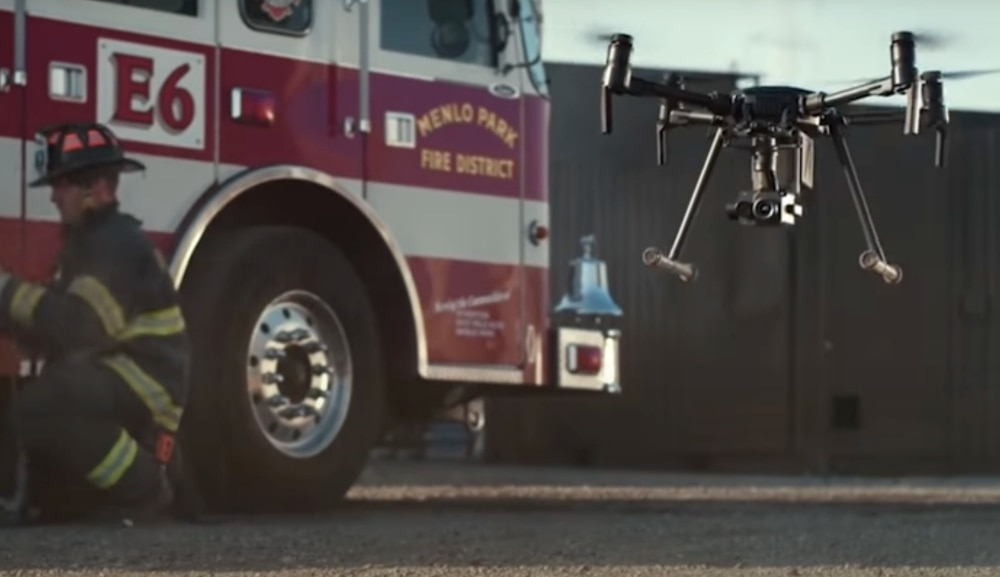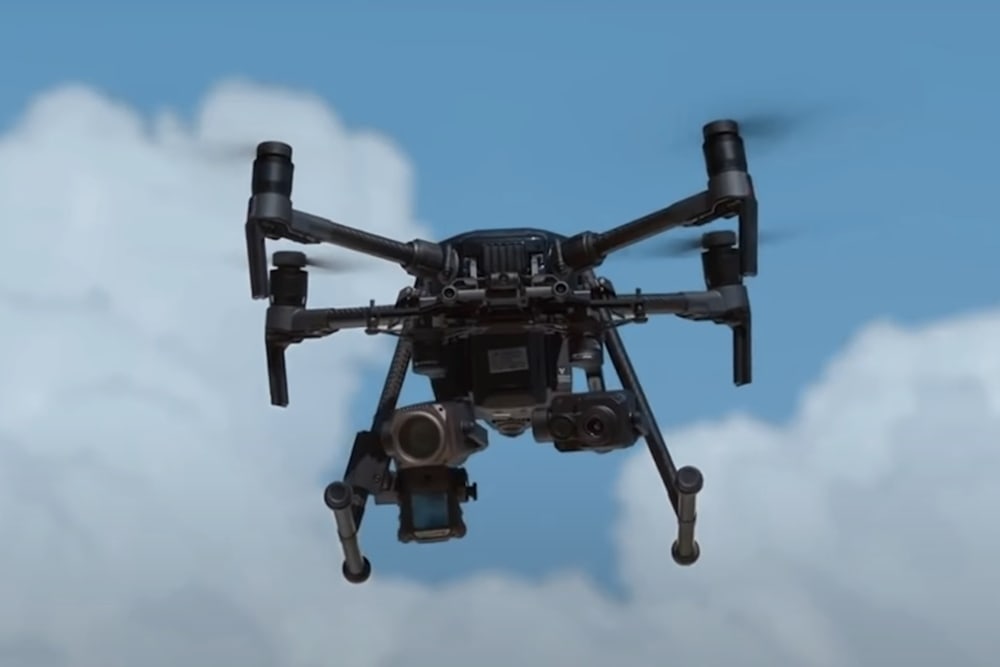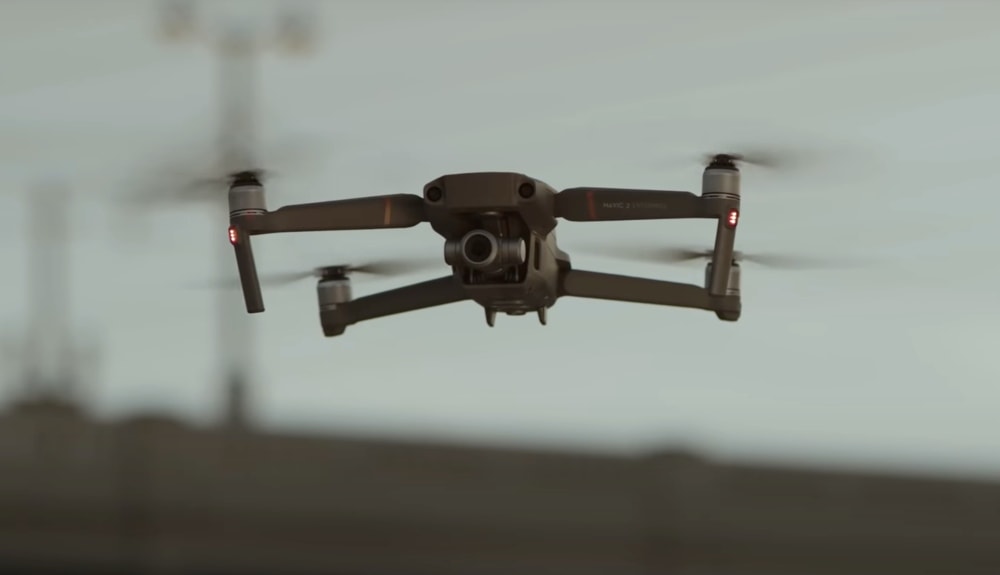Leaked Pentagon Report Reveals that Two DJI Drones Have Been Cleared for Government Use
BY Zacc Dukowitz
9 June 2021A report leaked to The Hill reveals that the Pentagon has found both DJI’s Government Edition Matrice 600 and DJI’s Government Edition Mavic Pro to be free of privacy concerns, and cleared for government use.

Photo credit: DJI
According to the report, which was the product of an audit conducted by the Department of Defense, the two drones “show no malicious code or intent and are recommended for use by government entities and forces working with US services.”
The report was written by Adam Prater, the second chief warrant officer with the U.S. Army Special Operations Command, who has declined to comment publicly on its findings.
Only the section of the reporting pertaining to the two DJI drones was made public—the rest of the report remains classified.
[Related read: American Drone Companies: A Master List]
Despite the report’s findings, a government-wide ban on DJI drones could still be put in place this year if the American Security Drone Act (ASDA) gets passed.
Earlier this year, the ASDA was inserted into a much larger bill—the U.S. Innovation and Competition Act—and it looks likely that the bill will become law.
If the ASDA passes, the federal government would not be able to buy drones from foreign countries recognized as a threat to the U.S., including China, for five years. The proposed ban would start in 2023.
Origins of the DJI Pentagon Report
The motivation for the Department of Defense’s audit of these two DJI drones seems to have come from the Interior Department.
In October of 2019, the Interior grounded all 800 of its drones—at least 500 of which were DJI models—due to cybersecurity concerns.
The only exceptions to the temporary grounding were for emergency use cases, in which the drones were needed to help fight fires or assist in some other urgent mission.

Photo credit: DJI
Grounding its fleet was a big deal for the Interior. The year before it had conducted 11,000 drone flights and the grounding order brought these operations to a halt, with the emergency requirement allowing for only a few handful of drone missions in 2020.
This March, the Interior Department broadened its definition of emergency flights, allowing it to support more wildland fire response and Search & Rescue missions. But the lack of clarity about cybersecurity issues has still put a serious damper on its use of drones.
[Want to make sure your DJI drone isn’t sharing your data? Here’s what to do.]
Although the Pentagon’s report seems to provide a greenlight for the Interior Department to ramp its drone program back up, the reality may not be so simple.
The same month that the Interior grounded its entire fleet, in October of 2019, the Department of Homeland Security issued a report finding that DJI’s Mavic Pro and DJI’s Matrice 600 were not secretly sending data to places they shouldn’t—that is, that both drones were clear of privacy concerns. (The report also cleared the Autel EVO and the Parrot ANAFI.)
Despite this report, the Interior moved forward with grounding its entire fleet.
And we may see a similar outcome now, with the Interior continuing to keep its DJI drones grounded despite the findings of the Department of Defense audit.
A Brief History of DJI Privacy Concerns
It’s important to remember that the leaked Pentagon report only cleared two DJI drones for government use.
These two drones were made specifically by DJI to address the U.S. government’s concerns about cybersecurity, and came with the following features:
- No Data Transmission. Prevent data transfer from the mobile application over the internet to third parties or to DJI.
- Firmware Update Reviews. Government agency aviation and IT departments can review firmware updates in electronic isolation before applying them to their fleets.
- Restricted Hardware Pairing. Drones and remote controllers running Government Edition solution firmware can only be linked with each other and are not compatible with other DJI products.

Photo credit: DJI
The creation of DJI’s Government Edition was actually fueled by accusations from the U.S. government that DJI was sharing data with the Chinese government.\
In fact, the last several years have seen a series of back and forth between the U.S. and DJI regarding privacy concerns.
Here is a brief history of DJI privacy concerns in the U.S.:
- August, 2017. The U.S. Army issues a blanket ban on all DJI drones based on allegations that DJI’s drones were secretly configured to collect and send user data back to DJI.
- October, 2017. DJI responds by releasing Local Data Mode, which allows pilots to fly without any data being shared.
- November, 2017. An internal memo is leaked from the Department of Homeland security saying that DJI is using its drones to collect sensitive information in the U.S. and share it with the Chinese government.
- April, 2018. DJI hires San Francisco-based Kivu Consulting, Inc. to review its privacy practices. The resulting report absolves DJI of malicious or negligent data sharing practices, but privacy concerns linger.
- May, 2019. The Department of Homeland Security (DHS) issues an advisory in which it warns companies that their data may be at risk if they use drones made in China.
- June, 2019. DJI issues Government Edition, a line of drones made to ensure complete privacy of data, including photos, video, and locational data. At the same time, DJI announces that it will begin making drones within the U.S. and sends an open letter to the Senate Committee on Commerce, Science, and Transportation and the Senate Subcommittee on Security.
- October, 2019. DHS issues a report clearing the DJI Matrice 600 and Mavic Pro of cybersecurity concerns. The same month, the Interior Department temporarily grounds its entire drone fleet due to cybersecurity concerns.
- January, 2020. The Interior Department extends the grounding of its drones indefinitely due to concerns that Chinese spying concerns. DJI publishes a statement calling the action “politically motivated” the day it is announced.
- January, 2021. The American Security Drone Act is included in the U.S. Innovation and Competition Act.
- June, 2021. A leaked Pentagon report determines that the DJI Government Edition Matrice 600 and DJI Government Edition Mavic Pro have been cleared for government use.
The Future of DJI in the U.S. Government
The truth is that it may no longer matter whether DJI drones are being used to spy on us.

Photo credit: DJI
In many ways, the conversation at the government level about banning foreign drones has shifted away from privacy concerns and toward the importance of building a domestic drone industry.
The emphasis on removing our reliance on China by propping up the domestic production of essential technologies can also be seen in the sweeping bill Congress recently passed to invest $250 billion in U.S. tech industries.
And moving things domestic is certainly a reasonable idea.
The big concern is that we make this transition in a way that doesn’t leave those U.S. and other companies who rely on DJI components and those customers who have invested heavily in DJI products—including our police departments—in the dust.
Do you think DJI drones are safe from privacy concerns? Share your thoughts in this thread on the UAV Coach community forum.


